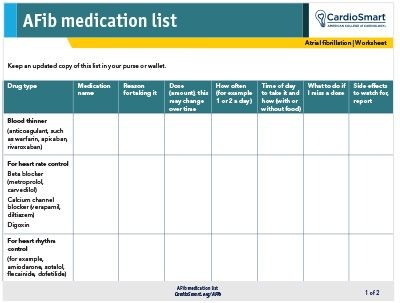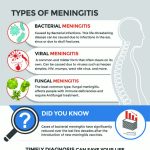
Contents
Atrial Fibrillation (AFib) Treatment Drugs
Talk to your doctor about medications and lifestyle changes to improve heart health.
What is atrial fibrillation?
Atrial fibrillation, also known as AFib, is a heart disease that causes an irregular and rapid heart rhythm. It results from abnormal electrical impulses in the upper chambers of the heart (atria) to the AV node.
Normally, heart muscle contractions start with an electrical impulse in the right atrium. This impulse, called the "natural pacemaker," causes regular heartbeats that move oxygenated blood from the left atrium to the left ventricle. When this normal impulse is disrupted by additional electrical activity in the atrium, irregular or very fast signals can occur.
- Atrial flutter occurs when atrial electrical signals are very fast and regular.
- Atrial fibrillation occurs when atrial signals are irregular or chaotic.
People with AFib often experience symptoms such as a fluttering sensation in the chest, heart palpitations, lightheadedness, fainting, or weakness.
Serious symptoms requiring immediate medical attention include shortness of breath, chest pain, low blood pressure, fainting, confusion, and very rapid heartbeats.
Although there are no blood tests that can confirm a diagnosis of atrial fibrillation, your doctor may order blood tests to check for other health problems that may mimic or contribute to your symptoms.
What does atrial fibrillation look like?
AFib is a type of arrhythmia that occurs above the ventricles. It is characterized by irregular electrical activity in the atria, mainly the right atrium. This usually results in a fast and irregular heartbeat.
Medications and other treatments, such as electrical cardioversion or ablation therapy, are available for AFib. Most treatment programs begin with drugs.
These drugs are generally divided into three categories: heart rate-slowing drugs, heart rhythm medications (antiarrhythmic drugs), and blood thinners.
List of drugs that slow the heart rate
A majority of people with AFib have an increased heart rate, which can weaken the heart over time. There are several drugs available to slow the heart rate.
Beta-blockers
Beta-blockers prevent stimulation of beta-adrenergic receptors responsible for increased heart action. They include metoprolol, labetalol, nadolol, atenolol, nebivolol, acebutolol, penbutolol, bisoprolol, and pindolol.
Calcium channel blockers (CCBs)
CCBs slow the heart rate by blocking calcium influx into cells. Examples include diltiazem and verapamil.
Digitalis is a drug that strengthens heart muscle contractions and slows the heart.
List of drugs that control heart rhythm
Beta-blockers are often used to treat AFib, but additional drugs may be necessary to control the irregular electrical activity generated in the atria.
Sodium and potassium channel blockers are used specifically to treat the chaotic electrical activity in the atria. Examples include amiodarone, sotalol, dronedarone, ibutilide, and dofetilide.
List of drugs that prevent blood clots and strokes
AFib increases the risk of blood clots in the heart. Blood thinners are used to prevent clots and reduce the risk of stroke.
Antiplatelet drugs
Antiplatelet drugs interfere with the blood clotting process. Examples include aspirin, clopidogrel, tirofiban, prasugrel, ticagrelor, anagrelide, dipyridamole, and vorapaxar.
Blood thinning drugs (anticoagulants)
Examples include warfarin, apixaban, rivaroxaban, edoxaban, injectable enoxaparin, dalteparin, and fondaparinux.
Serious side effects of AFib drugs depend on the specific medication. They can include shortness of breath, slow heart rate, low blood pressure, dizziness, abnormal heart rhythm, lethargy, confusion, hallucinations, seizures, visual changes, excessive bleeding, and bleeding into the brain.
It is important to discuss any side effects with your doctor.
A variety of drugs may be used to treat AFib, and each person’s treatment may vary. It is important to discuss potential outcomes, side effects, and lifestyle changes with your doctor to determine the best course of action for your condition.
References: Lawrence R, MD. Atrial Fibrillation Treatment & Management. Medscape. Updated: Apr 09, 2018.


